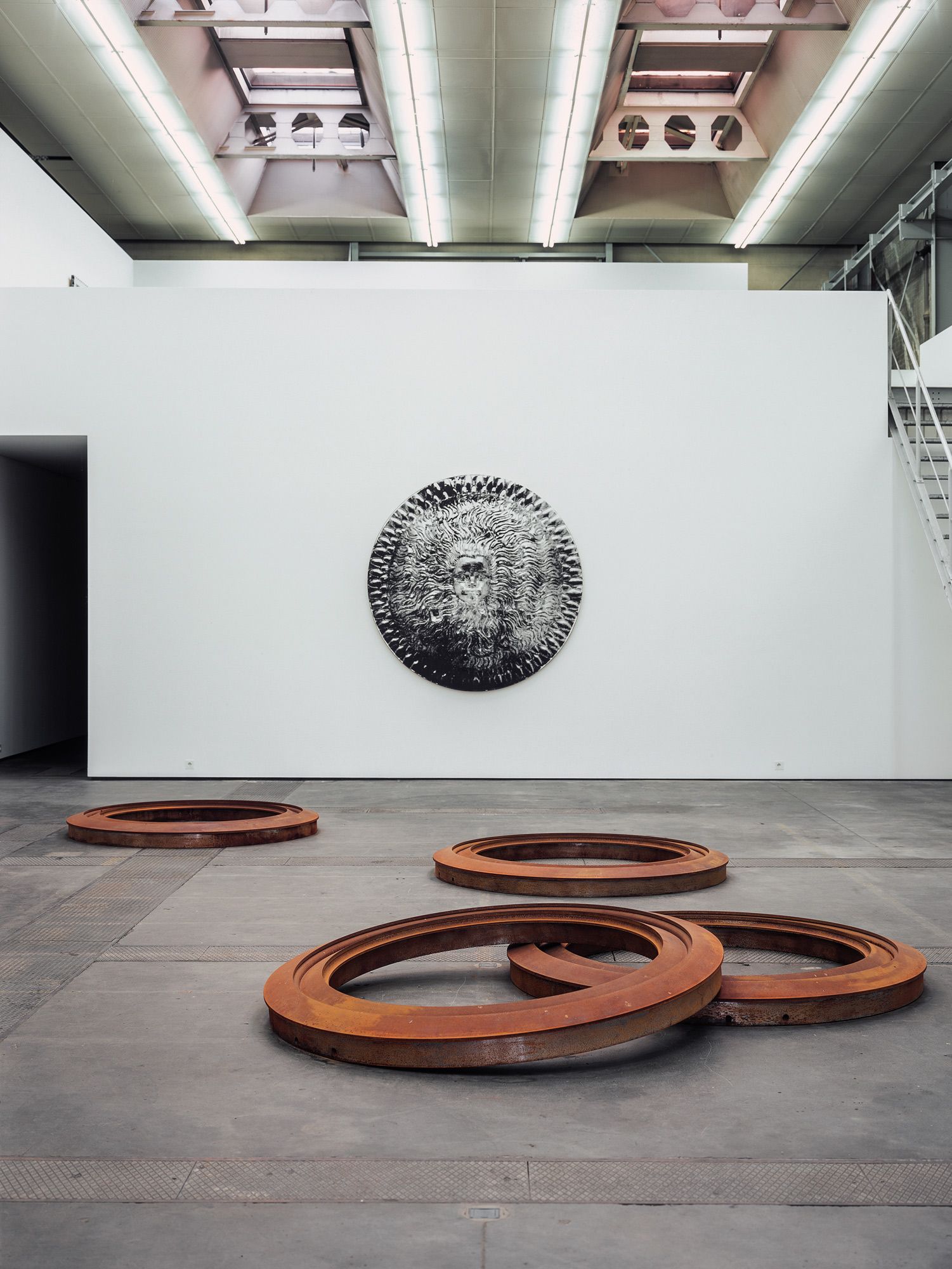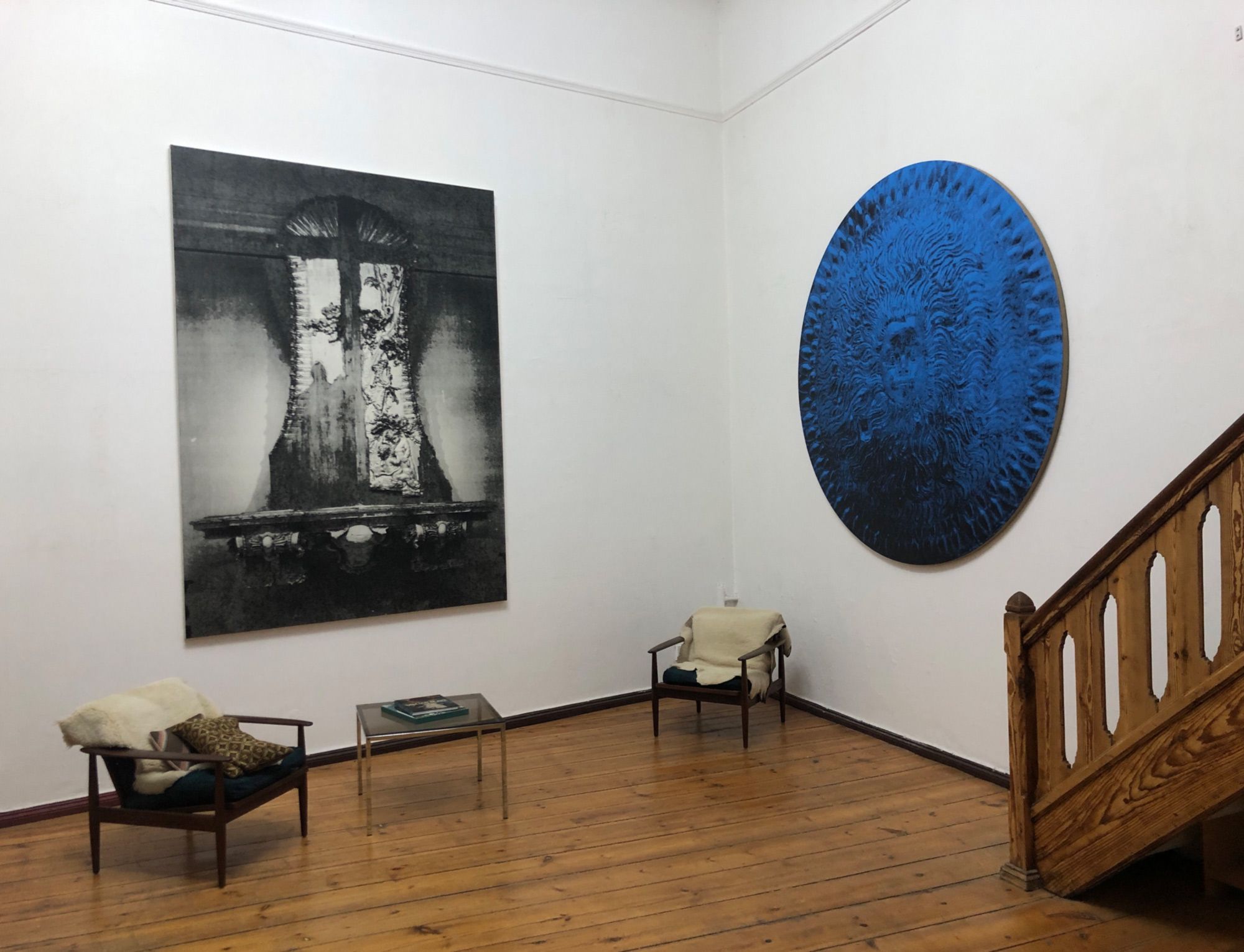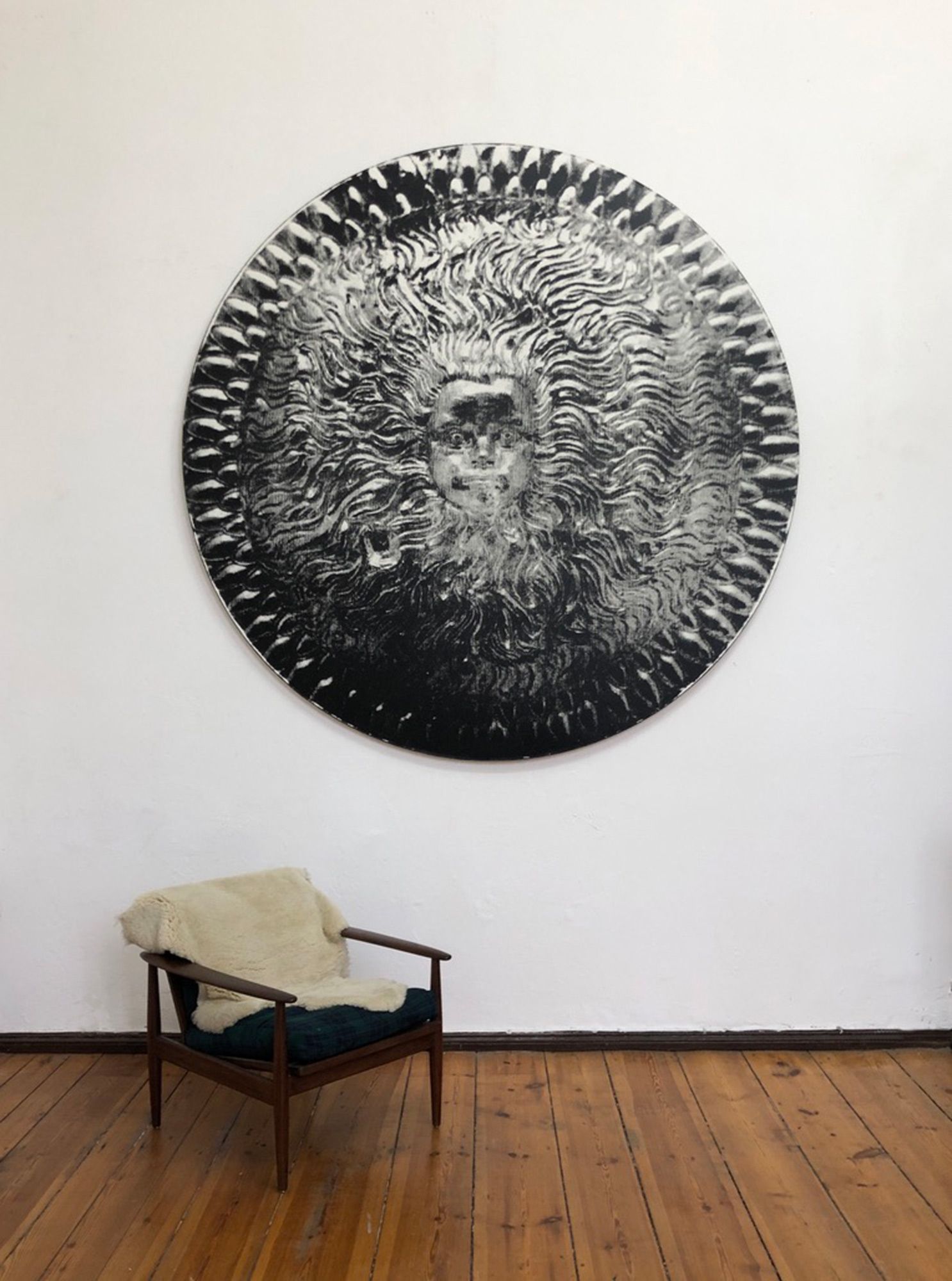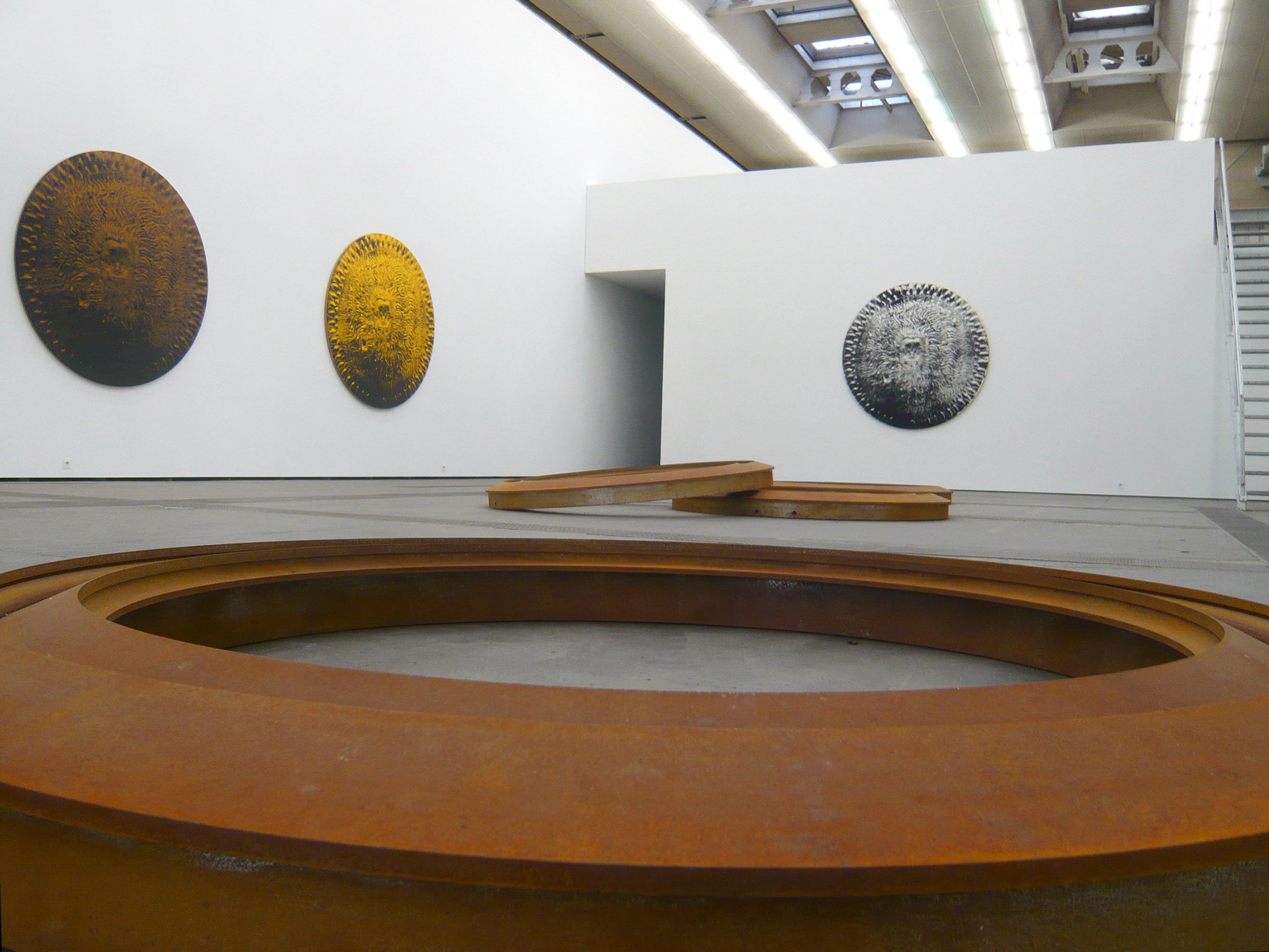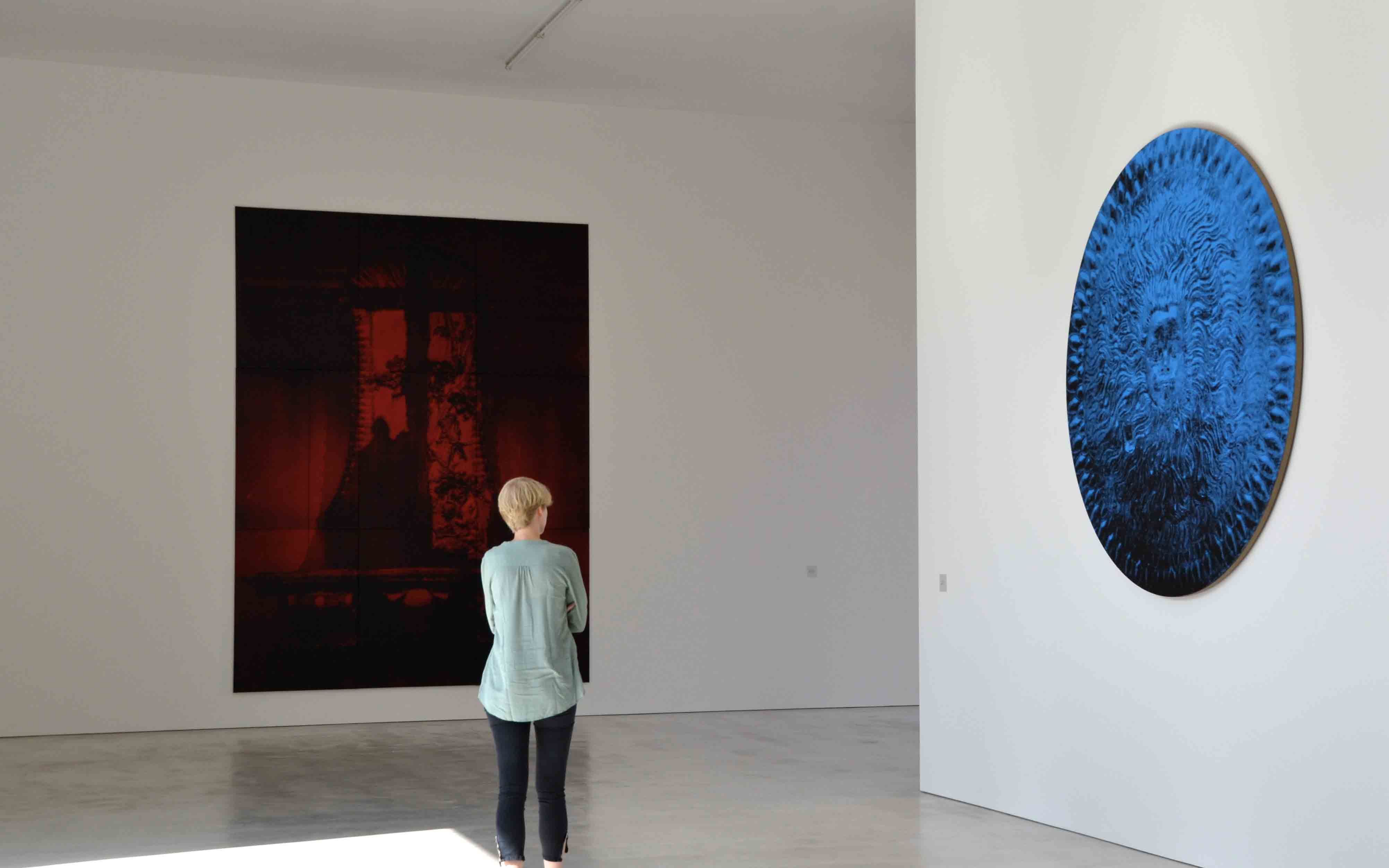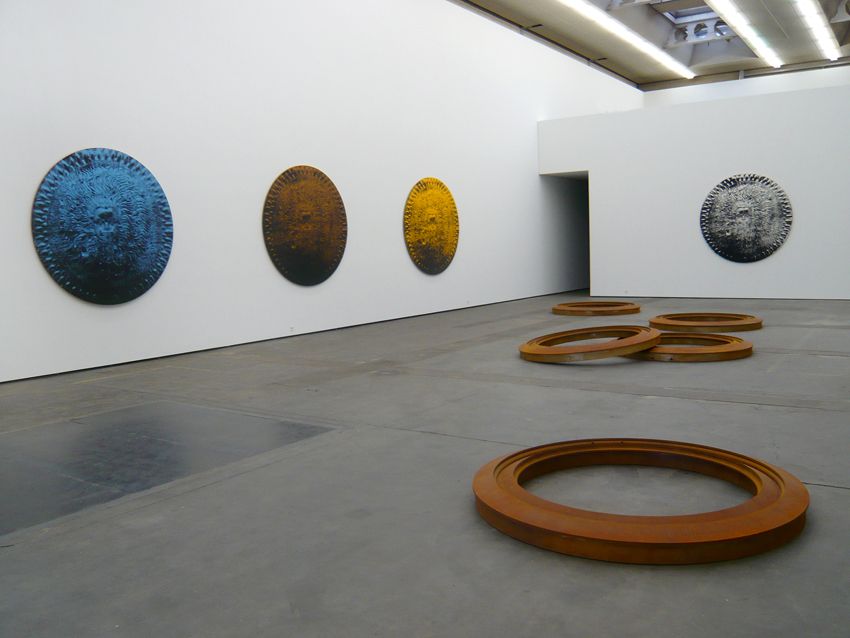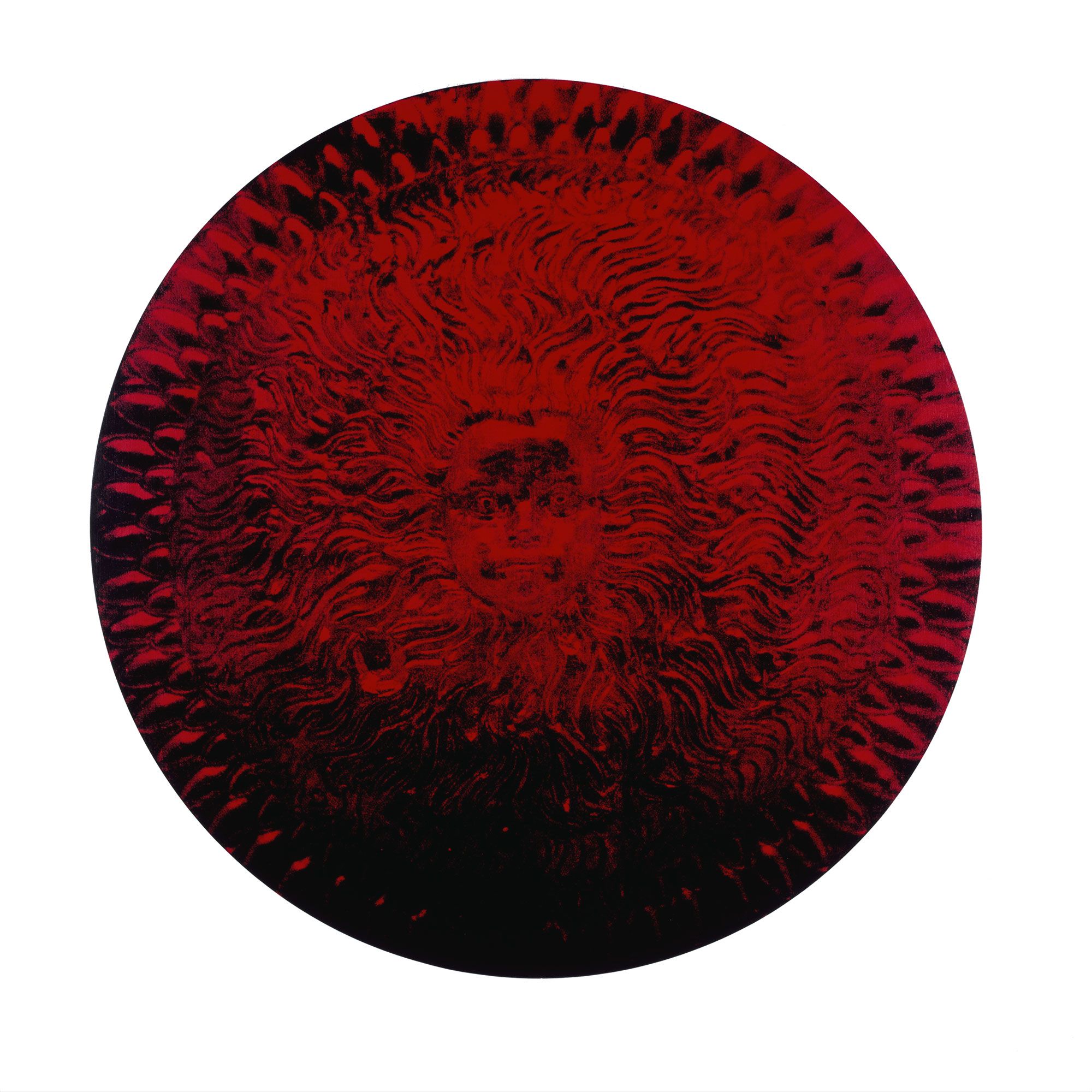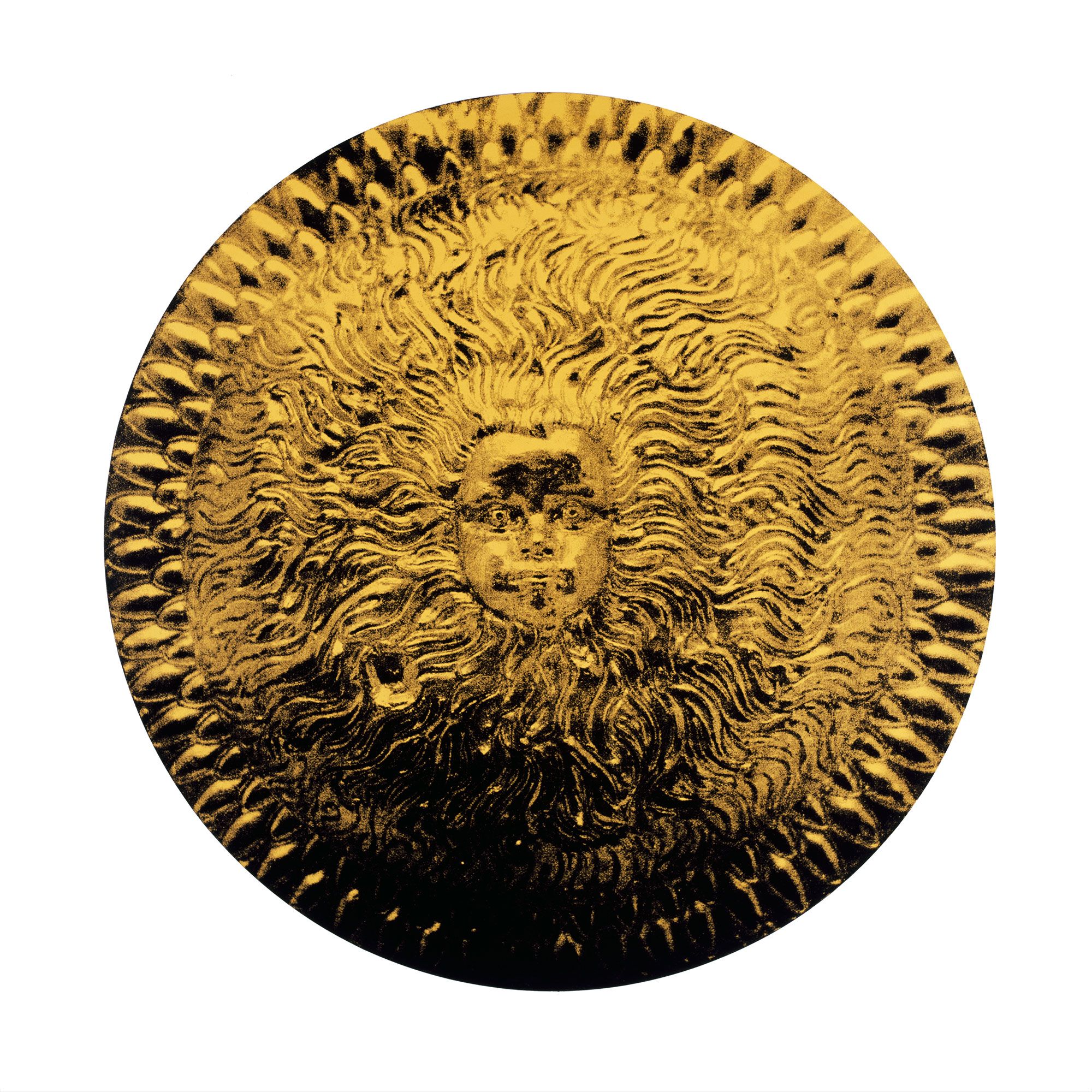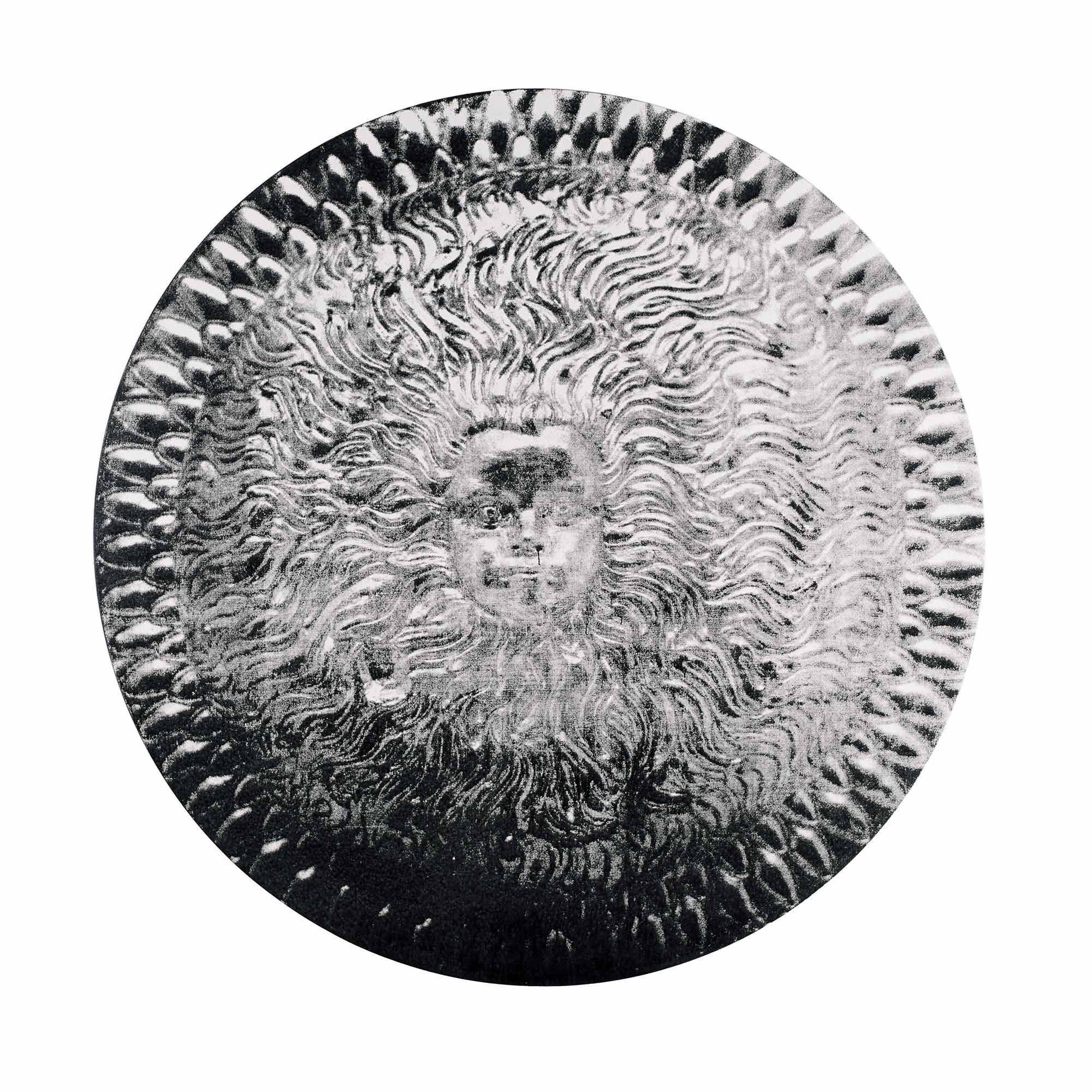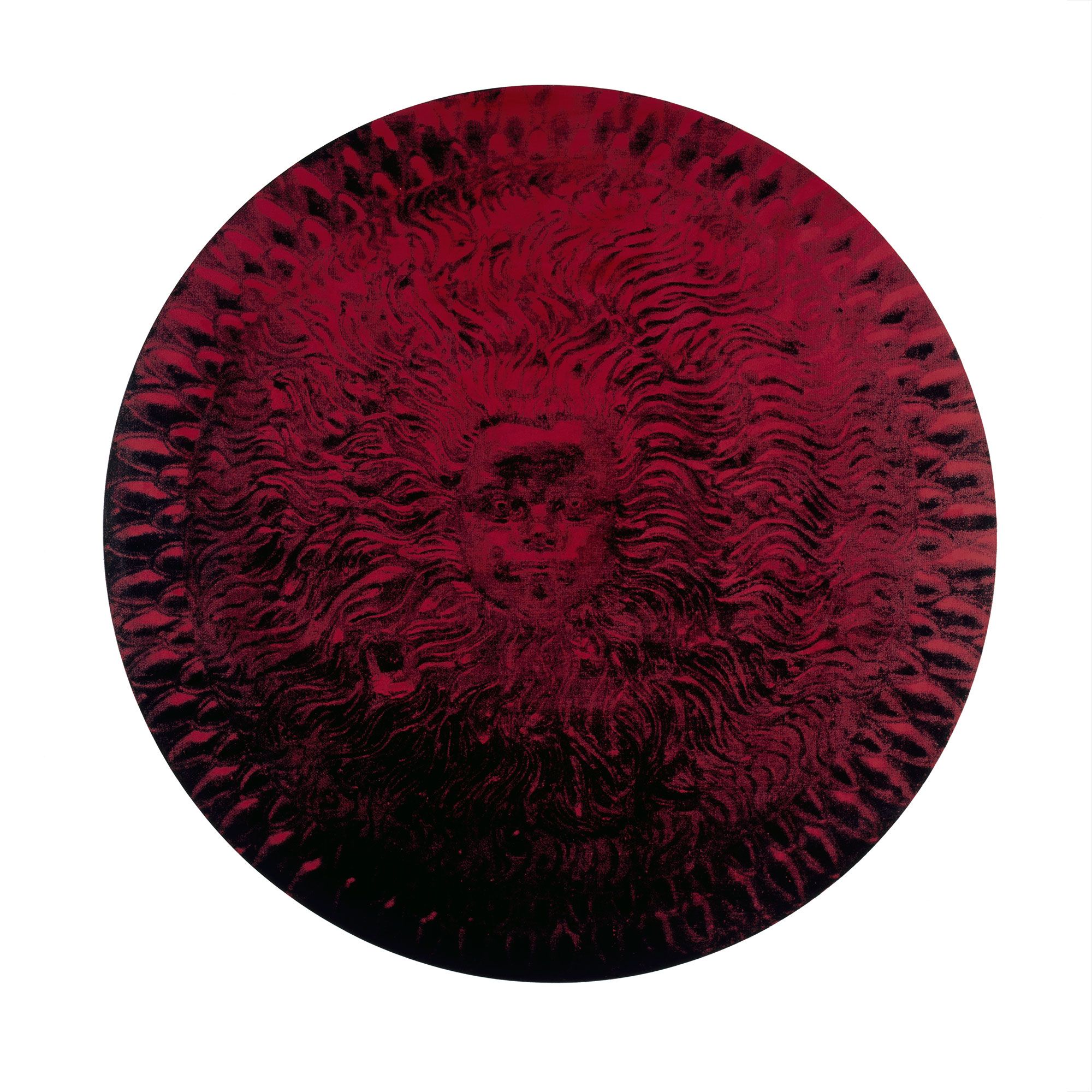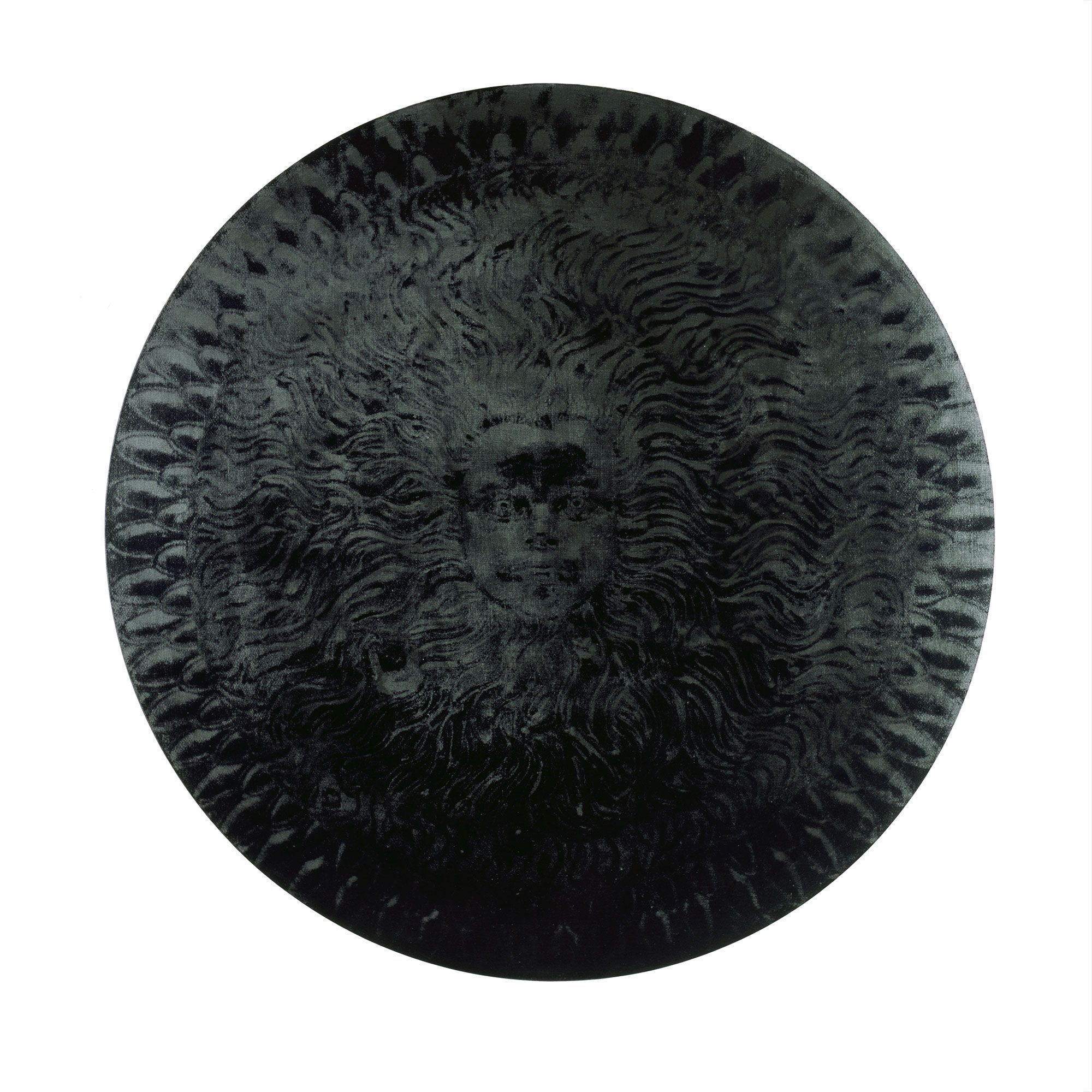At first glance, the shields gleam like relics — round, radiant, mythic. A face stares from the centre, framed by waves of stylised hair, an echo of divinity or design. But something is off. The palette shifts from violet to gold to ghostly blue; the surface seems degraded, overexposed. These are not sacred objects — they are copies. Mass-produced icons. Flat-pack epics.
Drawing on W.H. Auden’s The Shield of Achilles, these works trace the dissonance between myth and modernity, between the solemnity of inherited forms and the shallow echo chamber of reproduction. In Auden’s poem, the shield — once forged by Hephaestus for a hero — becomes a hollow thing, a vision of a future without hope or story. Alexander’s shields hum with that same chill: they aren’t altarpieces to mourn what’s lost; they’re pop prints of the loss itself.
Each shield is near-identical, and yet not. The multiplicity isn’t celebration — it’s erosion. Colour undercuts content. Beauty turns synthetic. The act of repetition becomes a kind of forgetting. And in a strange twist — or perhaps a flicker of doubt — these were not made with silkscreen ink, but with traditional oil paint. As if the artist couldn’t quite subscribe to the world he had foreseen.
What remains is the face — part sun god, part ornament, part cipher. It looks out, unblinking. But not with the warmth of protection. Rather, like an afterimage of humanity. A faint goodbye to the idea that man was ever at the centre of things.
Exhibited:
Mannheim Paintings, Galerie Bastian, Berlin 2014
Blacker Gold, Haunch of Venison Galerie, Berlin 2008
